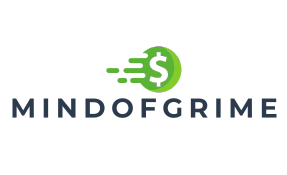Table of Contents
ToggleIn today’s fast-paced world, grind culture has become the badge of honor for many. It’s that relentless hustle that champions long hours and sleepless nights, often glorifying exhaustion as a sign of dedication. But what does it really mean to be caught in this whirlwind of productivity? Is it the key to success or just a one-way ticket to burnout city?
Understanding Grind Culture Meaning
Grind culture emphasizes constant hustle and relentless hard work. This mindset celebrates individuals willing to sacrifice personal well-being for professional success. People often admire those who dedicate long hours and contribute beyond standard expectations. Traditionally, success is measured by output and achievement, leading many to equate busyness with value.
Long working hours are a common hallmark of grind culture. Employees may stay late or work weekends, believing this dedication guarantees promotions or recognition. Metrics like productivity and accomplishment often overshadow employee well-being. Consequently, this relentless drive can foster an environment of burnout rather than fulfillment.
Critics of grind culture raise concerns about mental and physical health impacts. Various studies link overworking to increased stress, anxiety, and chronic illnesses. A shift in focus toward work-life balance promotes healthier lifestyles and sustainable productivity. Building supportive workplaces can enhance employee engagement and reduce turnover.
Grind culture finds its roots in competitive industries where performance is paramount. Many organizations foster a culture that encourages overachievement and discourages rest. Employees often feel pressured to conform regardless of personal needs or limitations. Consequently, this societal norm raises questions about long-term success and personal happiness.
Thus, understanding grind culture requires balancing ambition with self-care. Acknowledging the toll of grinding can reshape work environments. Prioritizing health allows individuals to pursue meaningful success without sacrificing their well-being.
Origins of Grind Culture

Grind culture’s roots trace back to various historical and socio-economic factors that shaped work ethic.
Historical Context
The Industrial Revolution laid the groundwork for grind culture. Workers faced long hours in factories, often 12-16 hours daily. This era promoted a notion that hard work equated to moral virtue and societal contribution. Over time, cultural shifts continued to emphasize productivity and competition, especially in capitalist societies. The rise of corporate America in the late 20th century intensified these values, with figures like Andrew Carnegie epitomizing relentless ambition. Concepts of the “American Dream” further reinforced the idea that success results from ceaseless labor and sacrifice. Consequently, grind culture evolved into a badge of honor in many industries, fostering expectations that persist today.
Modern Interpretations
In contemporary society, grind culture manifests through various channels, including social media and the gig economy. Platforms like Instagram and Twitter showcase influencers promoting hustle mentality, encouraging followers to work harder. Many young professionals equate constant busyness with success, believing a packed schedule reflects personal worth. Companies now perpetuate this culture by rewarding employees who prioritize work over personal life. This mindset often leads to burnout, with many individuals overlooking self-care. Experts warn against the detrimental impacts of this culture on mental and physical health, advocating for a reevaluation of priorities to achieve sustainable productivity. The call for balance becomes increasingly crucial in light of these challenges.
Key Characteristics of Grind Culture
Grind culture is defined by specific traits that shape its influence on work and personal lives.
Workaholism
Workaholism signifies an uncontrollable desire to work excessively, often at the expense of personal health and relationships. Individuals feel compelled to stay late at the office or check emails during off-hours. Many equate long hours with dedication, falsely believing such efforts guarantee professional success. As a result, personal well-being frequently suffers, leading to burnout and stress-related illnesses. Studies indicate that overworking contributes to mental health issues like anxiety and depression. Companies that promote this behavior often celebrate employees who sacrifice personal time, enforcing a cycle of workaholism that can devastate lives.
Hustle Mentality
Hustle mentality encapsulates the belief that relentless effort leads to achievement. Many young professionals internalize the idea that constant busyness equates to self-worth. This value system, often amplified on social media, glorifies individuals who exhibit extreme dedication. Influencers promote success stories that stem from tireless work schedules, captivating aspiring workers. The pressure to conform to this lifestyle can cause stress and overwhelm, creating a false narrative around productivity. Critics argue that such a mentality jeopardizes work-life balance, countering potential long-term success. Investing in self-care and personal time enhances overall productivity and fosters sustainable achievement.
Effects of Grind Culture
Grind culture significantly affects various aspects of life, particularly mental health and social interactions.
Mental Health Implications
Burnout frequently arises in individuals entrenched in grind culture, leading to anxiety and depression. Chronic stress affects cognitive function, reducing focus and productivity. Emotional exhaustion results from the incessant push for more hours, draining motivation and energy. The constant comparison with others contributes to feelings of inadequacy and frustration. Research indicates that those immersed in this culture experience higher rates of mental health disorders than their peers. Taking breaks and prioritizing self-care becomes challenging as the hustle mentality prevails. Acknowledging these implications prompts a necessary shift towards balance and well-being.
Impact on Social Life
Social lives often suffer under the weight of grind culture. Friends and family may feel neglected when work dominates personal time. Building fulfilling relationships becomes difficult when individuals prioritize tasks over connections. Loneliness frequently envelops those who sacrifice social interactions for professional advancement. The pressure to stay productive often leads to missed social events and gatherings. Over time, this isolation can strengthen feelings of anxiety and depression. Cultivating meaningful relationships fosters resilience against the negative effects of grind culture. Emphasizing quality time with loved ones enhances overall well-being.
Alternatives to Grind Culture
Finding alternatives to grind culture is essential for fostering well-being and overall productivity. Here are two significant approaches to consider.
Work-Life Balance
Work-life balance emphasizes the importance of allocating time between professional responsibilities and personal life. Individuals reap the benefits of healthier relationships and improved mental health when they establish clear boundaries. Prioritizing personal interests and family time leads to better job performance and satisfaction. Research shows that organizations promoting work-life balance experience higher employee retention rates. Implementing flexible work hours or remote work opportunities can significantly enhance this balance. Encouraging employees to take time off for personal activities fosters a healthier work environment overall.
Embracing Rest and Recovery
Embracing rest and recovery strengthens productivity and mental resilience. Individuals often overlook the importance of rest, thinking continuous work equates to success. Experts recommend taking regular breaks, which improve focus and creativity. Engaging in hobbies or mindfulness practices rejuvenates the mind and body, combating burnout. Employers benefit when their teams prioritize downtime, as well-rested employees show greater innovation and commitment. Incorporating wellness programs can encourage staff to engage in recovery activities. Practicing self-care habits contributes to a more sustainable and effective work culture.
Grind culture has significant implications for both individuals and organizations. As the pursuit of constant productivity takes center stage, it’s essential to recognize the toll it can take on mental and physical health. Prioritizing well-being over relentless hustle can lead to more sustainable success and fulfillment.
By embracing work-life balance and encouraging self-care, businesses can create healthier environments that foster productivity without sacrificing personal lives. This shift not only benefits employees but also enhances overall organizational performance. The future of work should focus on quality over quantity, promoting a culture where individuals thrive both personally and professionally.










